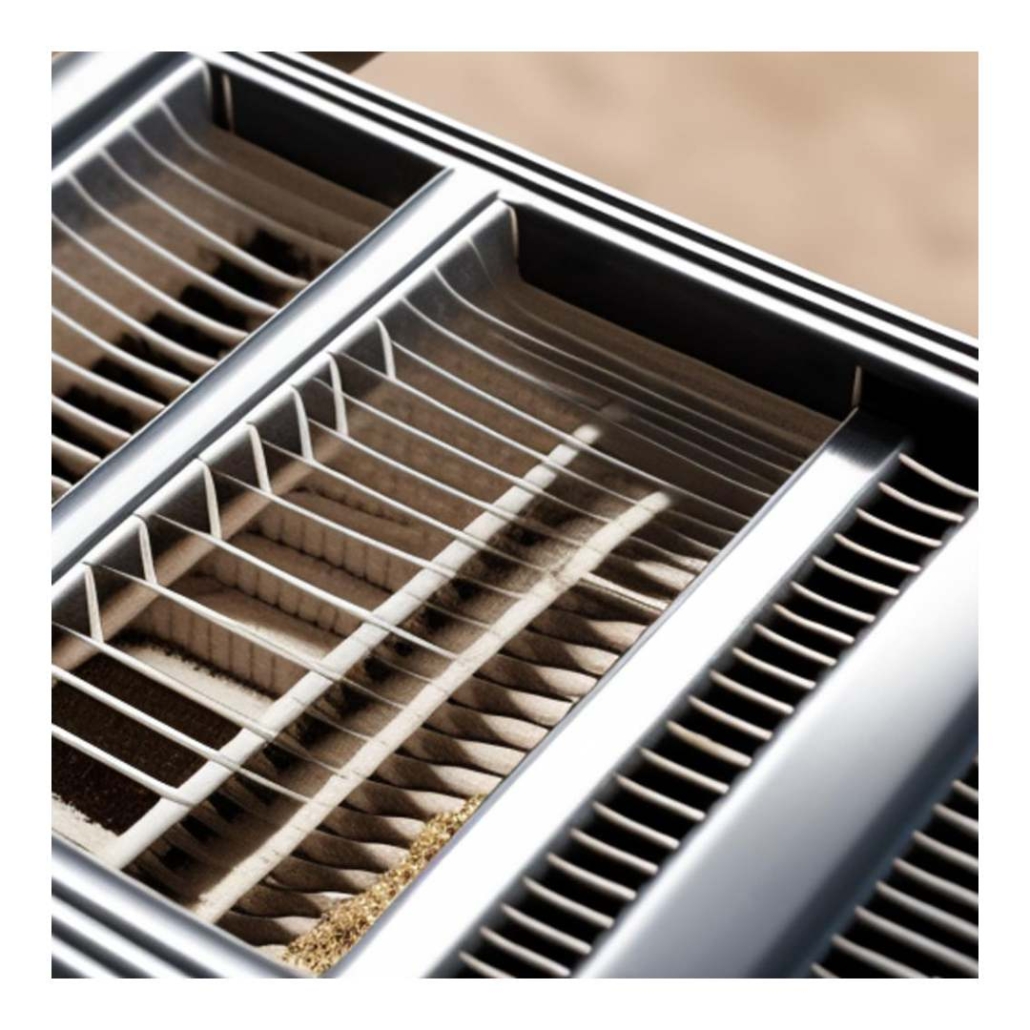How HVAC Air Purifiers Can Improve Indoor Air Quality and Health
 Indoor air quality (IAQ) holds profound significance as it directly influences the health, comfort, and well-being of occupants in various environments.
Indoor air quality (IAQ) holds profound significance as it directly influences the health, comfort, and well-being of occupants in various environments.
The quality of the air we breathe indoors has a substantial impact on respiratory function, allergies, and overall health. With modern lifestyles often leading to increased time spent indoors, whether at home, work, or other enclosed spaces, the presence of indoor pollutants such as allergens, dust particles, volatile organic compounds (VOCs), and even pathogens can pose a significant threat.
Maintaining high IAQ is not only essential for preventing health issues but also for fostering productivity, concentration, and overall quality of life. Given its undeniable influence on human health and daily living, prioritizing and improving indoor air quality emerges as an imperative endeavor for creating healthier and more sustainable living environments.
Role of HVAC Systems in IAQ Maintenance
HVAC systems play a pivotal role in maintaining indoor air quality (IAQ) by regulating and circulating the air within enclosed spaces. These systems not only control temperature but also manage ventilation and air exchange.
By filtering out airborne contaminants, such as dust, allergens, and pollutants, HVAC systems contribute to creating a cleaner and healthier indoor environment. They help dilute and remove indoor pollutants by ensuring proper air circulation, reducing the concentration of harmful particles.
Moreover, HVAC systems can be enhanced with air purifiers and advanced filtration technologies, further improving their ability to trap and eliminate a wide range of pollutants.
In essence, the effective functioning of HVAC systems ensures that occupants breathe in fresher, cleaner air, resulting in improved health and well-being.
Benefits for Indoor Air Quality
Before we dive into the different types of filtration systems and the pros and cons of each, we need to cover the benefits of Indoor air quality (IAQ) and how it impacts our health and overall well-being.
Comprehensive Contaminant Removal
HVAC filtration systems excel at capturing a wide spectrum of pollutants that degrade IAQ. From common allergens like dust, pollen, and pet dander to harmful microorganisms such as bacteria and viruses, these systems efficiently trap and prevent the circulation of pollutants throughout living spaces. This reduction in airborne particles leads to fresher, cleaner air for occupants to breathe.
Mitigation of Allergy and Asthma Triggers
For those with allergies and respiratory conditions, HVAC filtration systems offer substantial relief. By removing allergens and irritants, these systems help reduce the triggers that can worsen allergy symptoms and asthma attacks. Clean air promotes healthier breathing, lessens respiratory stress, and fosters a more comfortable environment for individuals sensitive to pollutants.
Control of Volatile Organic Compounds (VOCs)
Volatile Organic Compounds (VOCs), emitted by household products, paints, and furnishings, contribute to indoor air pollution. HVAC filtration systems equipped with activated carbon filters effectively absorb VOCs and odors, improving indoor air quality and eliminating unwanted scents. This creates a more pleasant and inviting atmosphere indoors.
Enhanced Overall Health and Well-Being
Clean air is linked to improved health outcomes. With HVAC filtration systems, occupants experience reduced exposure to pollutants that can trigger or exacerbate health issues. Breathing cleaner air not only reduces the risk of respiratory diseases but also enhances sleep quality, concentration, and overall quality of life.
Efficient Ventilation and Air Exchange
HVAC systems equipped with advanced filtration systems facilitate better ventilation and air exchange. This constant circulation helps maintain a balanced indoor environment by preventing the stagnation of pollutants. Proper ventilation, coupled with effective filtration, ensures that indoor air remains fresh and invigorating.
Understanding HVAC Air Purifiers
Filtration Methods, Technologies, Targeted Pollutants, and Particles
HVAC air purifiers employ sophisticated mechanisms to enhance indoor air quality. These mechanisms primarily revolve around advanced filtration technologies.
- High-efficiency particulate air (HEPA) filters capture microscopic particles like dust, pollen, and pet dander, effectively improving air cleanliness. Additionally, activated carbon filters absorb volatile organic compounds (VOCs) and odors, reducing their presence. Some purifiers utilize UV-C technology to neutralize bacteria and viruses by disrupting their DNA structure.
- Photoelectrochemical oxidation (PECO) filters employ light to create oxidizing agents that destroy pollutants at the molecular level. Electrostatic precipitators charge particles, causing them to adhere to collection plates. These combined mechanisms result in a comprehensive purification process that significantly enhances indoor air quality and contributes to healthier living environments.
Integration with HVAC systems
When it comes to improving indoor air quality (IAQ), the integration of advanced filtration systems with HVAC systems is a game-changer. This innovative approach addresses airborne contaminants at their source, offering a comprehensive solution for creating healthier indoor environments. Let’s explore two common styles of integration: in-duct and standalone filtration systems.
In-Duct Filtration Systems
In-duct filtration systems are designed to seamlessly integrate with existing HVAC systems. These systems are installed within the ductwork, strategically positioned to capture and filter particles before air is distributed into living spaces. The key advantage of in-duct systems is their ability to treat all the air passing through the HVAC system, ensuring consistent IAQ improvement throughout the entire building.
As air circulates through the HVAC ducts, it passes through high-efficiency filters such as HEPA or MERV filters. These filters are designed to trap a wide range of particles, from dust and pollen to even the tiniest bacteria and viruses. In-duct systems effectively address various contaminants, making them an essential tool for homes and commercial spaces alike. Moreover, integrating filtration directly into the HVAC system optimizes space utilization and minimizes the need for additional equipment.
Standalone Filtration Systems
Standalone filtration systems, on the other hand, offer a versatile approach to IAQ improvement. These units can be placed in specific rooms or areas that require focused air purification. While they operate independently from HVAC systems, they can complement the existing infrastructure by providing localized purification in areas of high activity or concern.
Standalone units are highly adaptable and can be positioned where they are needed most. For example, if there’s a room prone to allergens due to pets or allergies, a standalone purifier can provide concentrated filtration to address those concerns. They often come equipped with a range of filters, including HEPA, activated carbon, and even UV-C technology, allowing customization based on specific air quality challenges.
Factors in Choosing HVAC Air Purifiers
Choosing the right HVAC air purifier involves careful consideration of several factors to ensure optimal performance and IAQ improvement.
First and foremost, the size and capacity of the air purifier should align with the dimensions of the space it will serve. Oversized units can lead to unnecessary energy consumption, while undersized ones might not effectively purify the air.
Additionally, filtration efficiency and ratings are crucial. High-efficiency filters like HEPA or those with higher MERV ratings capture a wider range of particles, ensuring thorough purification.
Noise levels are another important factor. Selecting an HVAC air purifier with acceptable noise levels is essential for maintaining a comfortable environment, especially in areas where silence is appreciated.
Moreover, considering maintenance requirements and costs is vital. Regular filter replacement and system upkeep are necessary for sustained performance. By weighing these factors thoughtfully, individuals can choose an HVAC air purifier that aligns with their IAQ needs, ensuring healthier indoor spaces.
Conclusion
Indoor air quality (IAQ) is not a mere luxury but a fundamental determinant of our health, comfort, and overall well-being. As we spend a significant portion of our lives indoors, the air we breathe becomes an influential factor in our daily lives. The presence of contaminants like allergens, dust particles, volatile organic compounds (VOCs), and even pathogens underscores the need to prioritize IAQ enhancement in our living and working spaces.
Improved IAQ fosters an environment that nurtures productivity, concentration, and mental clarity. Clean air aids in restful sleep, fuels creativity, and reduces the risk of various health issues. In today’s world, where our connection to the outdoors can sometimes be limited, maintaining high IAQ becomes an essential task for promoting a balanced and wholesome life.
The role of HVAC systems are not just about temperature control; they are the silent guardians of indoor air quality. By efficiently managing ventilation, air exchange, and integrating advanced filtration technologies, HVAC systems lay the foundation for healthier indoor environments. The integration of filtration systems, whether in-duct or standalone, introduces an advanced layer of protection against pollutants, allergens, and pathogens. It is a testament to the progress we’ve made in creating spaces that genuinely support our well-being.
As we navigate the choices for HVAC air purifiers, factors such as size, filtration efficiency, noise levels, and maintenance become guiding lights. These factors ensure that the chosen system aligns perfectly with the space’s needs, delivering optimal air purification without compromise.
Embracing cleaner air is not just an investment in our health; it’s an investment in the quality of our lives. The air we breathe shapes our experiences, our memories, and our future. By embracing the significance of IAQ and the role of HVAC systems, we pave the way for a brighter and healthier tomorrow.
Need new filters for your HVAC system shipped directly to you from Jacobs and Rhodes? We’ve got you covered!

 Jacobs and Rhodes
Jacobs and Rhodes Jacobs and Rhodes
Jacobs and Rhodes